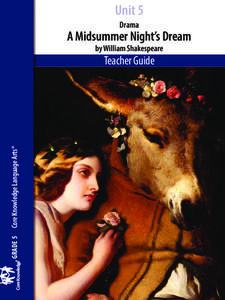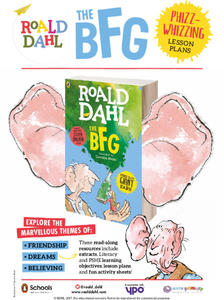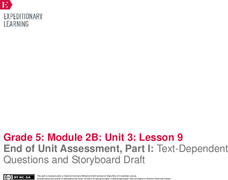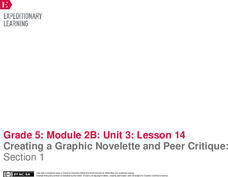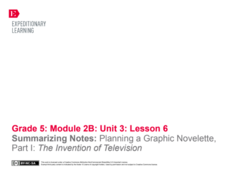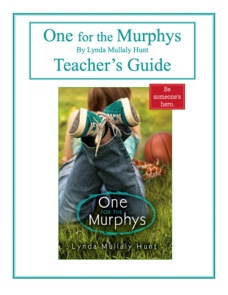Core Knowledge Foundation
Unit 7: Poetry
Over the course of a 12-lesson language arts unit, young scholars analyze a variety of poems taking a close look at figurative language and tone. They learn to compare and contrast, improve comprehension, and identify settings. To...
Core Knowledge Foundation
Unit 5: A Midsummer Night’s Dream
Fifth graders analyze William Shakespeare's A Midsummer Night's Dream, paying close attention to character development, plot, and dialogue. With daily reading and thoughtful discussion, scholars take pen to paper to respond to journal...
Core Knowledge Foundation
Unit 2: Early American Civilizations
Fifth graders explore early American civilizations in a four-week ELA unit. Every lesson offers an opportunity to read and discuss a selected passage followed by word work that covers vocabulary, grammar, and morphology. Learners write...
Core Knowledge Foundation
Unit 1: Contemporary Fiction - They Call Me Güero: A Border Kid’s Poems by David Bowles
They Call Me Güero: A Border Kid's Poems by David Bowles is the focus of a five-week language arts unit unit. Fifth graders listen to various poems and participate in thoughtful discussions, examining vocabulary and learning new words in...
Roald Dahl
The BFG Lesson Plans
A 55-page unit examines the novel, The BFG, by Roald Dahl. Six lessons pay close attention to friendship, dreams, and believing themes while analyzing interesting characters, writing creative vocabulary, smilies, metaphors, an exciting...
EngageNY
End of Unit Assessment, Part 1: Text-Dependent Questions and Storyboard Draft: “You Can Do a Graphic Novel” Excerpt
Eyes on the finish line. Serving as the first part of the end of unit assessment, learners answer questions based on a text about how to write a graphic novel. Using what they've learned, they then create a storyboard about the invention...
EngageNY
Final Performance Task: Presenting Graphic Novelettes
Let's get graphic. Serving as the final performance task of the unit, scholars complete their graphic novelettes and design covers based on their sketches. Finally, they present their hard work to classmates.
EngageNY
Creating a Graphic Novelette and Peer Critique: Section 1
Help the class put a plan in place. With the detailed resource, pupils plan the first section of their graphic novelettes about an invention, creating and labeling their pages. Next, they work with partners to give and receive feedback...
EngageNY
Summarizing Notes: Planning a Graphic Novelette Part 1: The Invention of Television
What's the story? Learners create the first of four storyboards about the invention of the television, incorporating narrative techniques and descriptive details. Next, they offer and receive feedback by participating in a peer critique...
EngageNY
Reading for Fluency: Readers Theater about the Rainforest (Page 33)
Lights, camera, action. Scholars use page 33 of The Most Beautiful
Roof in the World to create a readers theater. They work in triads and use sticky notes to mark and create their own speaking parts from sections of the text. They...
EngageNY
Our Group Readers Theater: Revision, Conclusion, and First Rehearsal
Revision is the key to great writing. Individuals revise their readers theater scripts and write a group conclusion. Scholars then perform their scripts for another group and receive feedback.
EngageNY
Our Group Readers Theater: Managing the Sequence of Events in Our Group Script
The whole is greater than the sum of its parts. Working in small groups, class members combine their independent readers theater scripts into part of a larger group script. They complete a storyboard to determine the best sequence for...
EngageNY
End of Unit Assessment: Individual Sections of Readers Theater Script
Let's play! Pupils create titles for their readers theater scripts and act them out in a fun game of charades. Next, as part of their end of unit assessment, they write final copies of their individual scripts.
EngageNY
Drafting Individual Readers Theater Scripts for a Specific Scene: Rephrasing, Narrator Introduction, and Identifying Characters
Read, revise, refine! Scholars refine their readers theater scripts by rephrasing some of the lines. Next, they write drafts of their narrator introductions and share their work with peers to give and receive feedback.
National Woman's History Museum
Seneca Falls and Suffrage: Teaching Women's History with Comics
As part of the study of women's history, young scholars examine Chester Comix's strips about the Seneca Falls Convention and four 19th century leaders in the struggle for equal rights. After researching other elements of the Suffrage...
Penguin Books
One for the Murphys by Lynda Mullaly Hunt - Teacher's Guide
Children in foster care face a lot of uncertainty in their lives. A guide for the novel One for the Murphys introduces a main character, Carley, who is thrust into the foster care system. Chapter-by-chapter questions cover key...
Louisiana Department of Education
The Lion, The Witch, and The Wardrobe
Compare and contrast popular works of fantasy literature with an in-depth reading comprehension unit. Language arts learners study the theme of good versus evil, fantastical characters and symbols, and the value of a visual...
Roald Dahl
Matilda - The Ghost
How do you think the parrot in "The Ghost" chapter of Matilda feels in the chimney? Put a class member in the hot seat and have the class ask questions relating to how they might have felt if they were the parrot in the chimney....
Learning to Give
Why Volunteer?
Inspire scholars to volunteer their time to make a positive change in their community. With help from research, a public speaker, and reflection, learners define and asses what it takes to be a volunteer in a business, non-profit,...
Curriculum Corner
Comic Strip Writing Templates
Spark interest in young writers with a three-box comic strip template including speech bubbles. Learners draw and write a sequential comic with boxes that are stacked on top of each other. Using this format or the other templates...
Australian Centre For the Moving Image
Dreamworks Animation Character Design
Dive into animation creation using Dreamworks® animated films. Compare and contrast characters, wonder and ponder why the plot is so important, and think of background and themes as your creativity unrolls onto paper.
Curated OER
Making Magical Creatures Talk
Invite your young writers to take the reins with writing dialogue. Using two characters of their own creation, kids work with partners and then individually to write short conversations.
Calloway County Schools
Dialogue Rules, Worksheet, and Writing Assignment
Punctuating dialogue properly can be tricky, but your pupils can become punctuation masters with practice. This resource includes an explanatory page that describes the rules of writing dialogue and provides examples. On the second page,...
Schools Linking Network & Lifeworlds Learning
How Do We All Live Together?
Explore the concepts of community and point of view with these activities complementing the children's book Voices in the Park by Anthony Browne. Following a class reading of the story, ask students to either draw a map of the...



